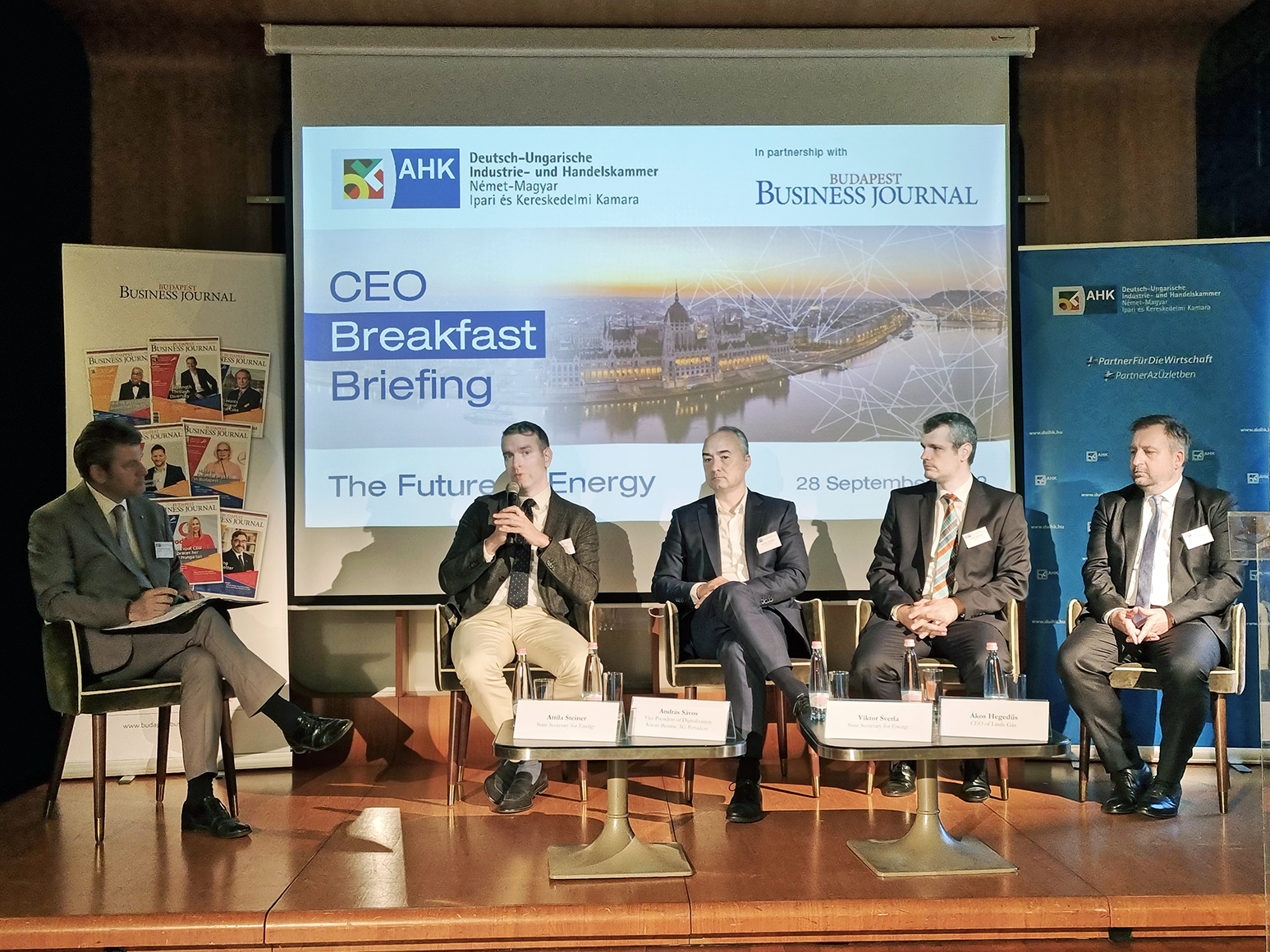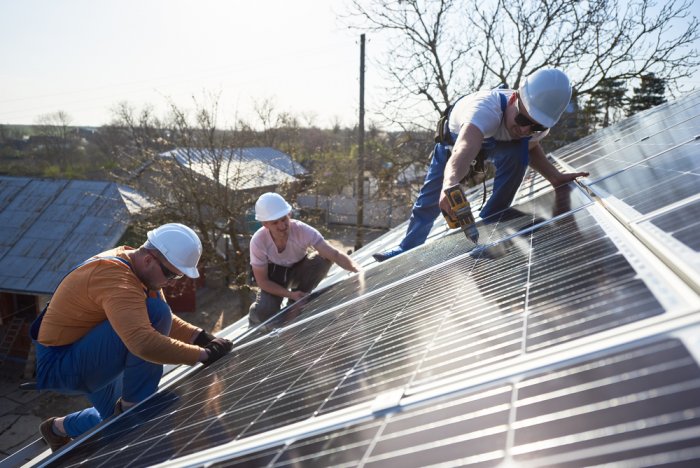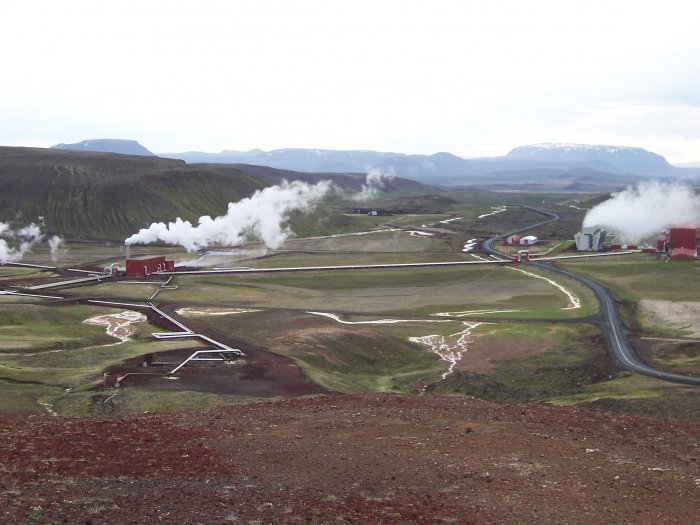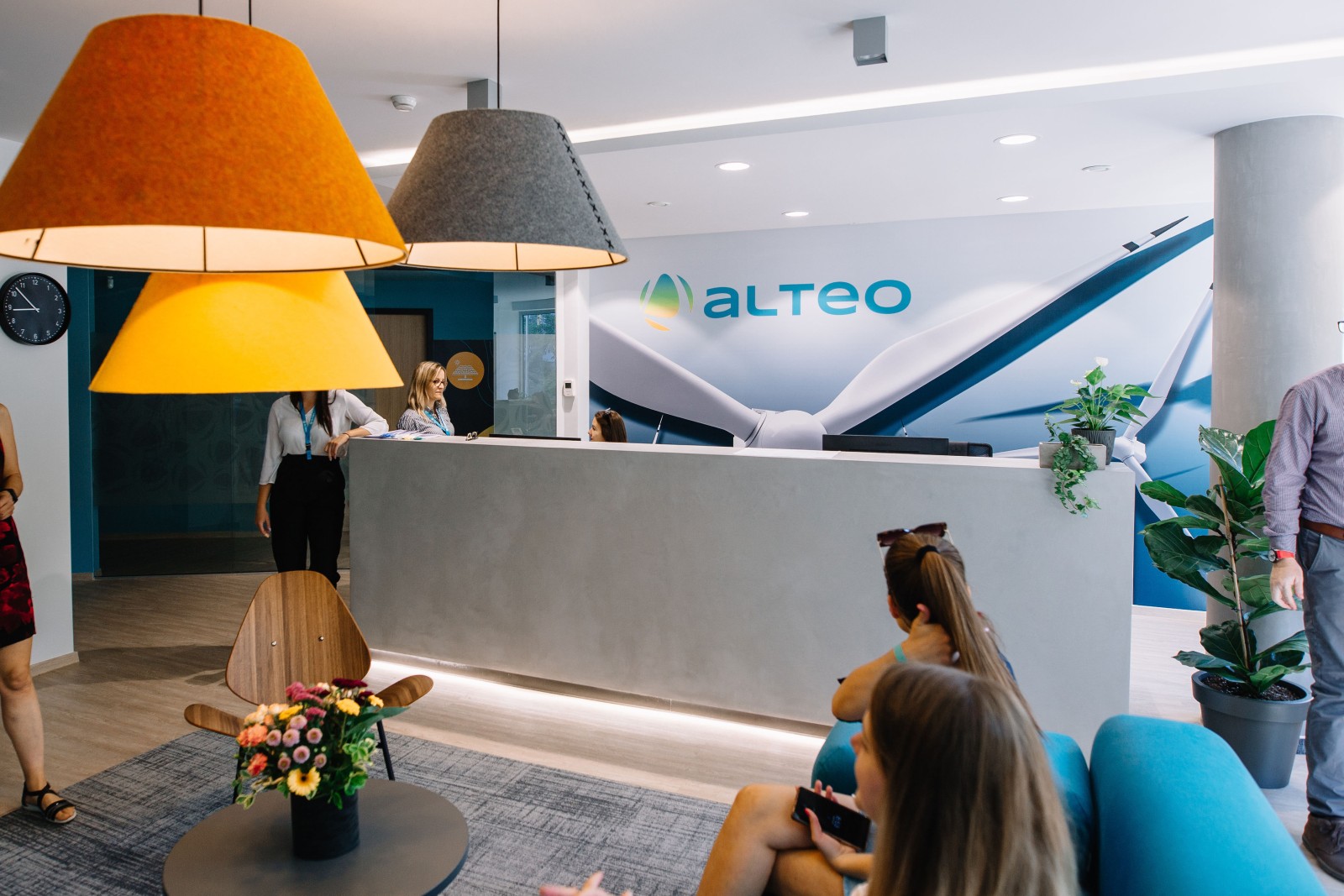The Way Ahead for Green Energy in Hungary

From left: Robin Marshall, Attila Steiner, András Sávos, Viktor Sverla and Ákos Hegedűs.
The cost of energy is perhaps the single biggest concern for households and businesses today. Electricity prices have risen multiple times in the first half of this year. Gas prices have increased by more than 10 times compared to the pre-pandemic cost, according to the European Commission.
The latest event in the CEO Breakfast Briefing, organized by the German-Hungarian Chamber of Industry and Commerce (DUIHK) in partnership with the Budapest Business Journal, discussed “The Future of Energy” and featured a panel consisting of Attila Steiner, State Secretary for Energy and Climate Policy at the Ministry of Technology and Industry; Viktor Sverla, head of group strategy at MOL Group; Ákos Hegedűs, CEO of Linde Gáz, and DUIHK president András Sávos.
After a short introduction by Barbara Zollmann, the CEO of DUIHK, State Secretary Steiner took the stage, outlining to the audience the government’s plans to alleviate the adverse effects of the energy crisis.
“In terms of security of supply, we have progressed quite well. It’s better to have some gas with high prices than to have none,” he noted.
He added that Hungary is well-positioned in transitioning to sustainable energy sources but pointed out, “We have to speed up our endeavor to decrease energy dependence on Russia.” This means that Hungary will work on updating its electric grid to allow more solar facilities to connect.
Steiner also noted that while domestic gas production currently covers approximately 15% of Hungary’s consumption, there is work in progress to increase this ratio to about 20%. Notably, while domestic production can make a more significant contribution, it cannot cover all of Hungary’s needs.
In terms of support to businesses, the state secretary argued that measures should be tailor-made for specific sectors, and help should be provided to SMEs looking to make themselves more energy efficient.
In the long term, Hungary aims to complete a EUR 16 billion investment plan in alternative energy by 2030, Steiner explained. That includes some 31 sub-projects and would cover the bulk of the country’s climate-neutrality goals.
European Proposals
After the state secretary’s presentation, a panel discussion followed, moderated by BBJ editor-in-chief Robin Marshall. In response to a question from him, Steiner said that there are currently five potential proposals from the European Commission to tackle the energy crisis.
Announced by the European Commission in mid-September, the proposals include mandatory measures to reduce electricity demand during peak hours, a cap on the high revenues some companies are making by generating electricity from lower-cost sources than gas, a solidarity tax on fossil fuel companies making big profits with the funds sent to help ease the pain for consumers and businesses, and facilitating funding support for ailing utility companies struggling to pay for supplies on the market.
Steiner talked positively about these first four ideas, but the fifth proposal, which would set a price cap on Russian gas, was not received well by the state secretary.
He said that an EU-wide price cap on gas imports might be detrimental to Central Europe, as it cannot cope with cuts in delivery if Russia decides not to supply more (or any) gas at the prices set by the European Union.
MOL’s Viktor Sverla concurred with this argument saying, “As an economist, I cannot imagine how a thing like that could work,” referring to the commission’s proposed price cap.
Addressing the current energy situation in Hungary, Sverla told the audience that MOL is doing its best in Hungary, trying to supply filling stations, even if the fuel situation is not the same as Hungarians have gotten used to in the past 20-30 years.
Regarding windfall taxes, he noted that while companies are not happy about them, they still have to be “reasonable” in order to help those in need. In the case of the introduction of an EU-wide windfall tax, he pointed out that the general framework would have to be harmonized with national plans; otherwise, companies in countries such as Hungary, where a tax on extra profits is already in place, would be at a disadvantage on the international market.
Long-term Contract
András Sávos, vice president and head of digitalization and process optimization at Knorr-Bremse, in addition to being president of the DUIHK, said that while his company does have some energy-related problems, it is lucky as it has a long-term electricity contract in place.
He also emphasized the importance of investing in sustainability projects. Knorr-Bremse started such a program some two decades ago, but it was in the last five-to-seven years that the company started making significant investments in sustainable energy. Sávos added that the firm had decided to accelerate the program while also considering in which areas they could make savings.
He also warned that the more significant threat was not to the multinationals but to the local SMEs who form the value chain and are less likely to have embarked on long-term projects and more likely to struggle with rising costs.
Ákos Hegedűs explained how hydrogen could be a vital alternative form of energy in the future, noting how interest in the alternative energy source is reflected in the fact that he had some 2,000 hydrogen-related business meetings in the last two years.
However, regarding the current crisis, he admitted, “It is not the solution. Although it can help in the decarbonization process, it also requires investments.”
He argued that the recent appearance in Hungary of two hydrogen-fueled personal autos is little more than a “dog and pony” show but noted that the gas as a fuel source for buses and trains could be a significant factor in a greener future.
Held at the Anantara New York Palace Hotel on Wednesday, September 28, the CEO Breakfast Briefing started with greetings by New York Palace general manager Tamás Fazekas. Apart from providing the venue, the hotel also offered participants an exquisite range of breakfast foods, pastries, and coffee.
This article was first published in the Budapest Business Journal print issue of October 7, 2022.
SUPPORT THE BUDAPEST BUSINESS JOURNAL
Producing journalism that is worthy of the name is a costly business. For 27 years, the publishers, editors and reporters of the Budapest Business Journal have striven to bring you business news that works, information that you can trust, that is factual, accurate and presented without fear or favor.
Newspaper organizations across the globe have struggled to find a business model that allows them to continue to excel, without compromising their ability to perform. Most recently, some have experimented with the idea of involving their most important stakeholders, their readers.
We would like to offer that same opportunity to our readers. We would like to invite you to help us deliver the quality business journalism you require. Hit our Support the BBJ button and you can choose the how much and how often you send us your contributions.









